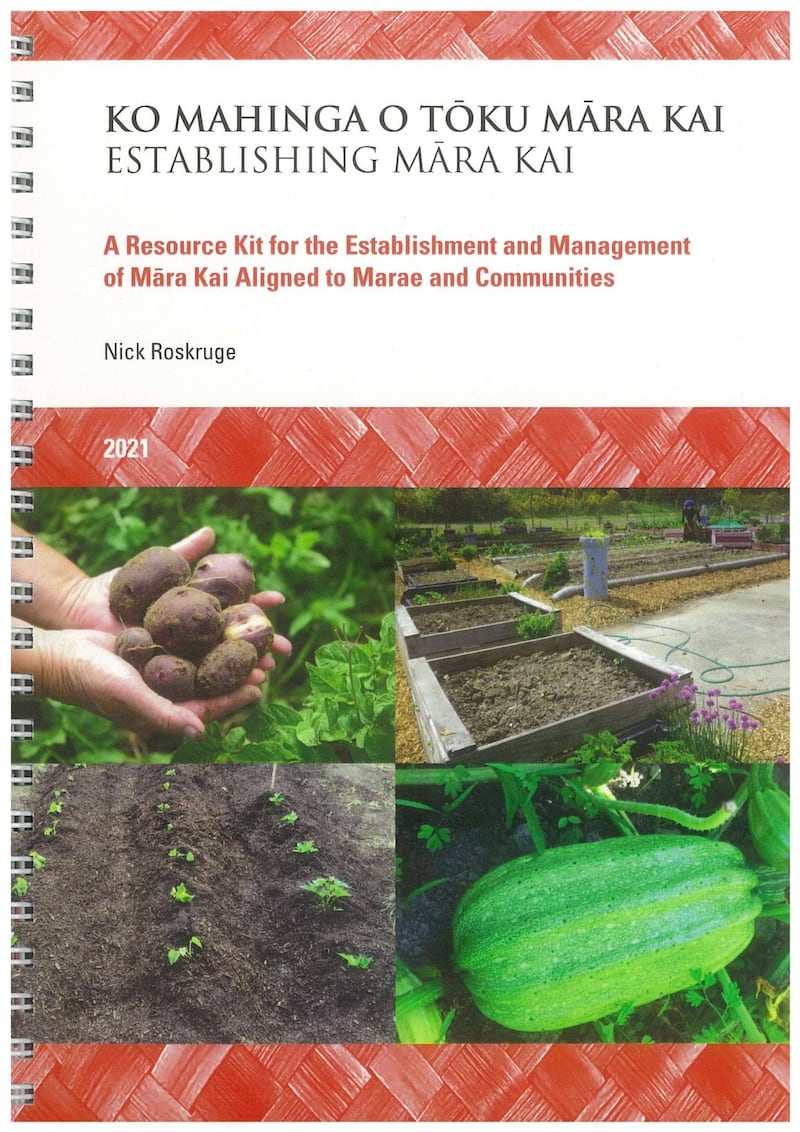A new gardening book from a Māori perspective has been launched to help teach whānau how to grow kai.
The book Establishing Māra Kai: A Resource Kit for the Establishment and Management of Māra Kai Aligned to Marae and Communities has been written by Massey University professor and Tahuri Whenua chairman Dr Nick Roskruge.
The book provides a step-by-step guide for beginners and experienced gardeners to establish contemporary māra. It also includes a Māori calendar, which begins after the first new moon following the appearance of Matariki to guide the best times for planting and fishing.
“Māra kai has become more visible since Covid-19 – people have turned back to homegrown [food]. I want to help educate people to make the information available. There are no books out there like this that comes from a Māori perspective.”
Roskruge, of Te Atiawa and Ngāti Tama, grew up working in the spud paddocks and is now teaching Māori communities horticulture. He says a māra kai can feed the whole whānau.
“For me it’s about independence - so marae can be independent to supply their own hui and tangi and so whānau have the ability to contribute without incurring huge costs, Roskruge says.
“I came from a generation where gardeners were just commonplace but, for a lot of people now, it’s a whole new activity so we’ve made ourselves available and this is another form of making ourselves available.”

Tahuri Whenua
The new book is the latest in a series of books published by Tahuri Whenua, the National Māori Vegetable Growers Collective.
“The whole concept came about because there’s very little for people to access about Māori foods, Māori horticulture. Everything you find out there is based on commercial horticulture or teaching resources.”
Through the Tahuri Whenua Trust, Te Puni Kōkiri supports 20 māra kai initiatives from Taumarunui down to Levin and provided another eight groups with seeds and technical expertise. Among the groups are kōhanga reo, kura kaupapa, marae, schools, land trusts, and community groups.
Te Puni Kōkiri regional advisor Cedric Nepia has worked with Roskruge on the Tahuri Whenua project.
“Here in Whanganui, we have a marae that has transformed its neatly mowed lawns into māra kai. It’s got the whole community motivated. We also have a māra kai with our gang member whānau thanks to Nicki's expertise," Nepia says.
"We are really pleased with the māra kai project. Many whānau are no longer going to the supermarkets, they are eating fresh and healthy kai. School lunch programmes are also beneftting from the kai grown in the gardens."
The book is available here.


